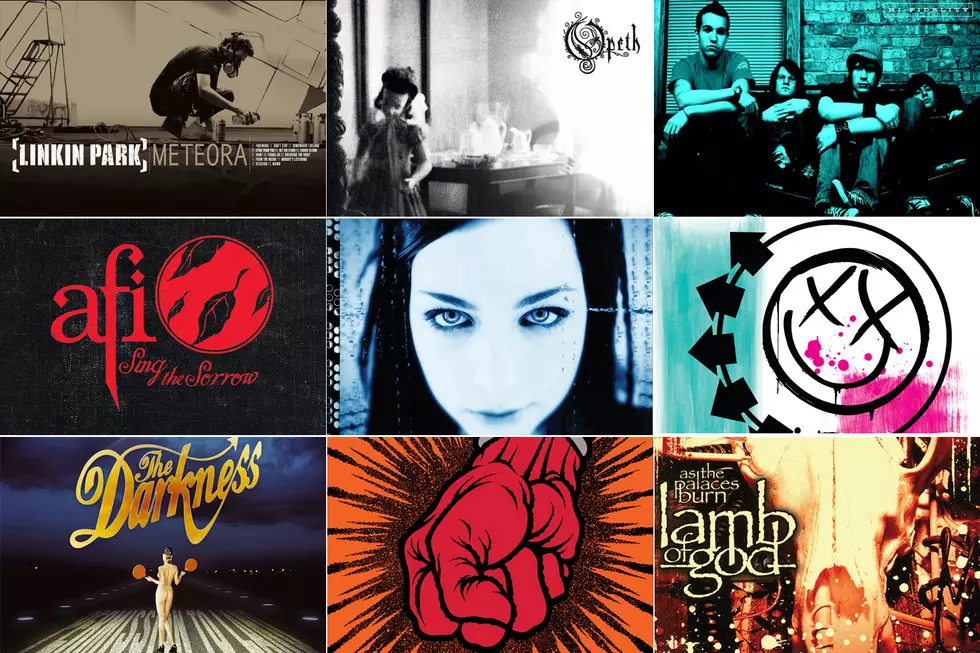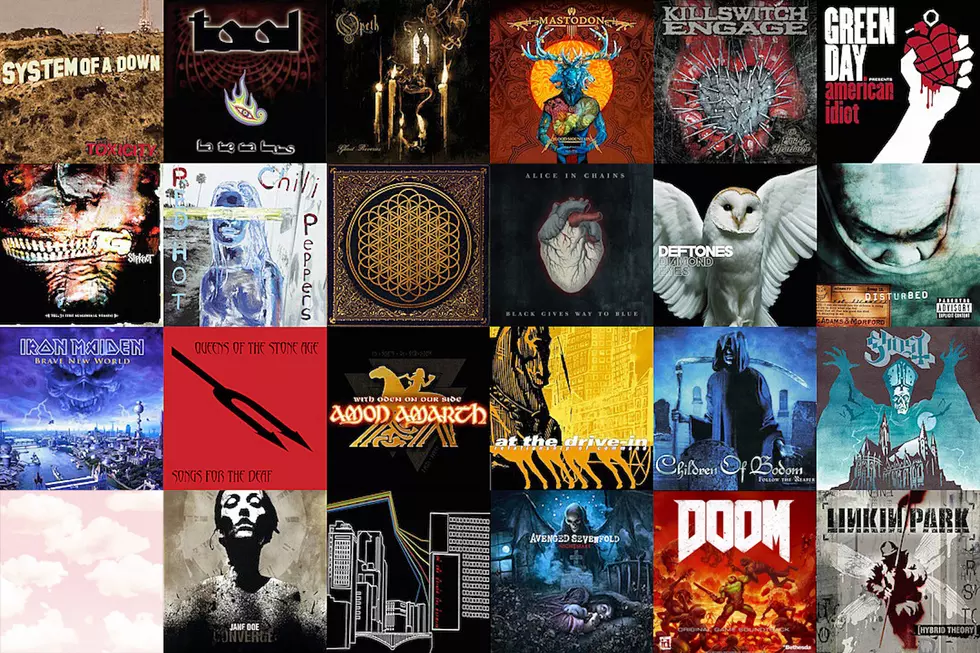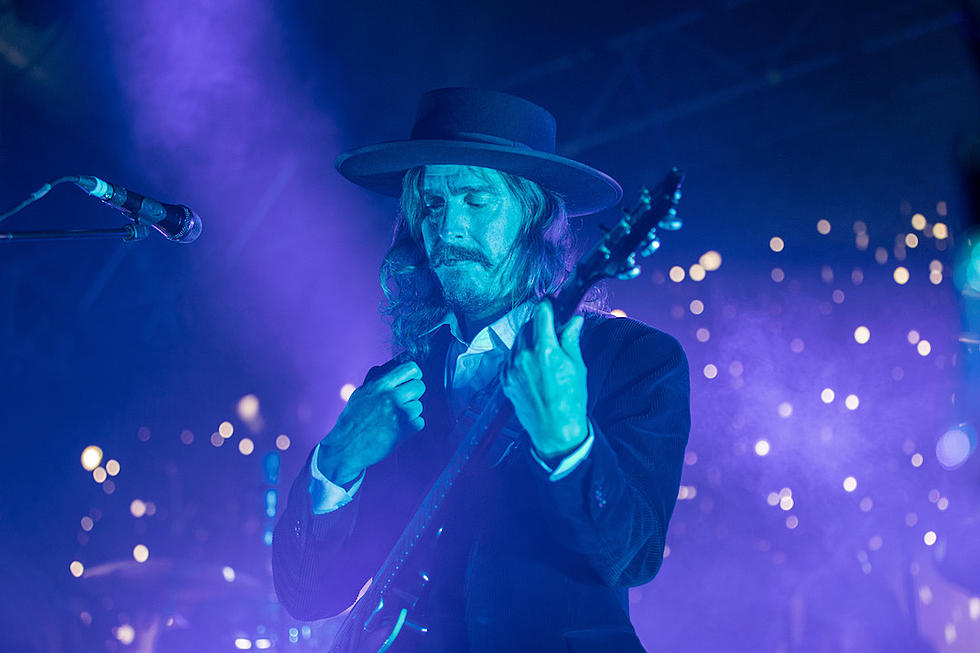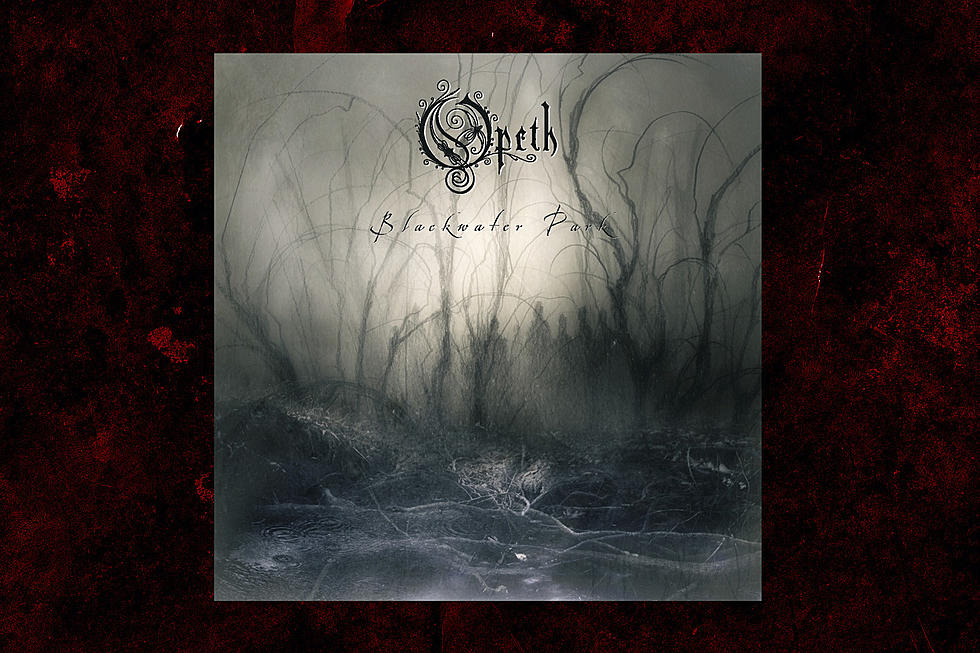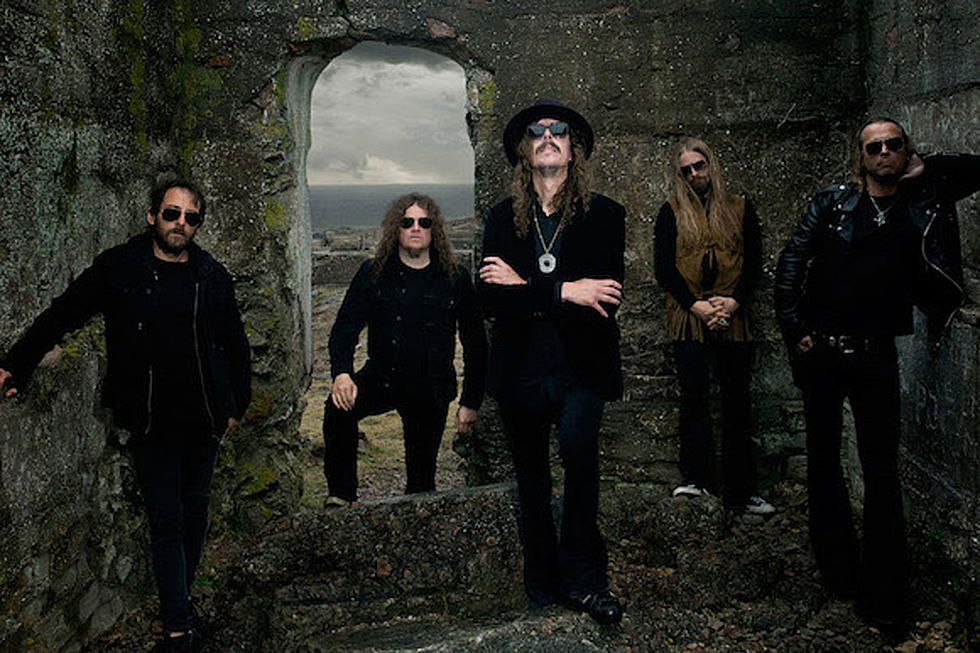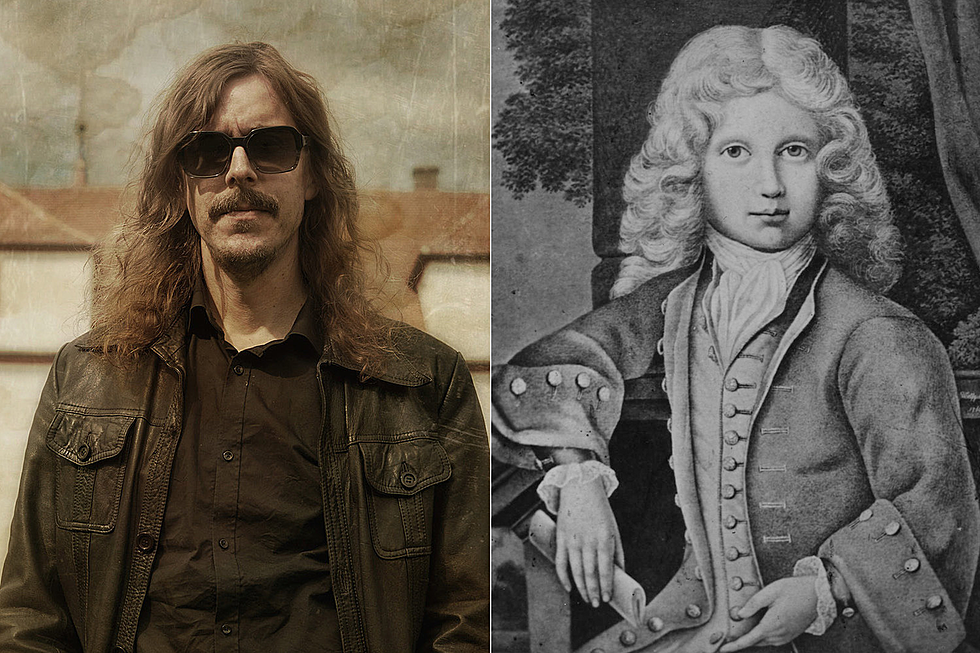
Mikael Akerfeldt: I Can’t Take You Seriously If Mozart Isn’t Heavy to You
Opeth mastermind Mikael Akerfeldt was the latest guest on Full Metal Jackie's weekend radio program, discussing the group's 13th album, In Cauda Venenum. The record, which was sung in both English and Swedish for independent releases, embraces differing aspects of heaviness, which Akerfeldt explains during the chat, noting the heaviness of Mozart's Requiem as a jumping off point.
He insists that any person who doesn't find the Mozart piece to be heavy is someone he is unable to take seriously. This is all in reaction to fans' decade-long complaints over Opeth's perceived lack of heaviness after Akerfeldt dropped guttural vocals from his studio regimen altogether and moved away from crushing heavy metal distortion.
Still, Opeth are a heavy band and the singer / guitarist spoke of other new challenges he faced while recording the new album, which way to maintain the same vibe between the English and Swedish versions. Akerfeldt also detailed how he secretly started writing In Cauda Venenum, which was a relief to know nobody else knew what he was up to.
Check out the full chat below.
Heavy can mean so many different things when describing music, how has your definition of heavy changed as you've evolved as a musician?
I got this question a lot based on something I said, but I'm still a heavy metal guy. I still love heavy metal, it just happens to be that my heavy metal is wrapped in nostalgia in many ways. I listen to the older bands, heavy bands in the '90s death metal scene and I love that type of heavy music. We've [been given] a lot of shit once we put out the Heritage record and people started complaining that we're not heavy enough.
It all seemed to me like the only thing people think about is that heavy means distorted guitars, fast drumming and screaming vocals. To me, there's the bigger picture of heavy. I'm not necessarily defending our alleged heaviness here, but there's more to heaviness in this band than screaming vocals.
I still love that shit, but there's more to that word and to that kind of vibe and feelings to the music than just that, for instance, I went and saw a Mozart thing and they did parts of Requiem in a church that was so heavy and anyone who would dispute that, I'm not sure if I could take that person seriously. Who would go, "Oh, that would have been much heavier with with heavy guitars."
There's two versions of the album featuring or you singing in English and Swedish. What's different about vocal phrasing and technique when you sing in one language compared to another?
I've done English up until this album. I think we did one song in Swedish, which was a cover around the time we did the Watershed record and that sounded kind of nice, but nothing special.
I didn't intend to do an English version at the beginning. It was just meant to be a Swedish version, so I focused on doing the vocals for that and that wasn't a big problem. It wasn't a big stretch for me or to anyone else when I played them the demos. To be honest, a lot of people, when I played a couple of songs, would go, "Whoa, hold on a minute. That's Swedish. Are you singing in Swedish?" 'Yeah, you only noticed this now?'
So that was a relief to me that it wouldn't stick out as much. But then I decided to do an English version and it wasn't a big difference. The most difficult thing was maintaining the same vibe to the vocal melodies because some vowels are more difficult to sing than others. I had to translate the lyrics into an English version which was at the time difficult, but overall the much easier than I than I thought.
After touring the last album you started writing for In Cauda Venenum right away. What aspects of the creative process reinforce your love of music?
My love of music has remained strong. My two daughters, my girlfriend and my cat I love dearly — they're top of the list. But after that it's the music. It kinda defines who I am as a person and without it I might as well lay down and die.
Writing my own music, that's a completely different thing than how I enjoy other people's music. I want to find myself, after I have written a song, wanting to sit back and listen as if I'm not in the band. That's always been the case. I want to distance my own involvement, but I, this time around I was meant to go on a sabbatical after the last Sorceress tour.
I got restless. I need to feel that I'm not completely useless. I sat at home staring at the walls when my kids went to school and my girlfriend went to her job and I felt useless. I had to do something and went down to the studio and started writing. Nobody knew I was down there because they thought I was gone for a year or something. It was just a joy. Nobody knew I was free.
In the past it's been a little bit like you go off tour and you have a couple of months and then you're supposed to get ready and start working on a new record. The irony is that I started sooner this time around, even though there was no pressure or anything at all, I just came back to that initial feeling that this is what I love to do.
It's almost like leisure to me, being in the studio, being able to noodle with a song — that's what I love doing the most. Of course there's a lot of pressure subconsciously because I know that once I'm finished and once I let people know that there's new music, the cogs will start turning and the wheels start turning and all of a sudden people are planning a press trip just like the one I'm on now. I don't like being away from my children and my girlfriend, but the writing process — wow. It was lovely. I couldn't stop writing. I loved it.
You're very conscious about the sequencing of albums especially, with this new record. What changes when you're trying to create that kind of flow with a live set?
Well, live we approach that collectively. I get the final say not because I'm that guy, I'm just a singer, but it puts a strain on you being up onstage screaming. I have veto power — I don't want to do a certain song that's not going to work in the long run. You have to have that type of economic thinking when you're doing a tour because you're going to be doing several nights in a row screaming.
Basically I view with the sequencing of songs live similar to how I look at them when we're doing a record. I like it to be shaped to a certain extent. It starts with high energy, kind of go down a little bit in the middle and then go up again and leave on a really high notes.
We also try to cover as many albums as we can these days and it's getting to be a problem now that we have 13 records packed with really, really long songs. So we have limited stage time for the most part and we want to play an hour and 45 minutes or up to two hours. We don't want to bore people in there, so it's virtually the same kind of mindset live as opposed to songs a record.
Thanks to Mikael Akerfeldt for the interview. Opeth's 'In Cauda Venenum' is out now and can be purchased here. Follow the band on Facebook, Twitter and Instagram and find out where you can hear Full Metal Jackie’s radio show here.
See Opeth in 2019's Best Metal Songs... So Far
More From Noisecreep
